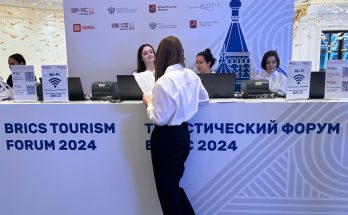
Contradicting Pakistan high commissioner Abdul Basit’s remarks that talks had been suspended, Pakistan foreign ministry spokesperson Nafees Zakaria said that the door was open for negotiations with India. “Yes, dialogue is the best option,” Mr Zakaria said at a media briefing, responding to a question whether bilateral talks between India and Pakistan were possible. Mr Zakaria also preferred “interaction and engagement” between the neighbours with troubled relations, and said both sides were in contact with each other.
“It is hoped that both sides would work out modalities for the foreign secretary level talks. We need to look ahead and not think in terms foreclosing any options. Both sides are in contact with each other. Once the modalities are worked out secretary-level talks would take place,” Mr Zakaria said. Over the visit of the Joint Investigating Team, he said that it was evaluating the information shared by the Indian side. “It may be appropriate to allow the investigations to take its due course rather than indulge in speculations,” he said.
Earlier, Mr Basit said in New Delhi that no meeting was scheduled for now and the present the peace process had been suspended. He had also said that the Pakistani’s team’s visit was not based on reciprocity. The Pakistani envoy’s remarks had not played down well with New Delhi.
The Pathankot attacks had stalled the peace process between the two countries and the latest development following Mr Basit’s remarks has resulted in a new low in the diplomatic ties between both the countries. The assault on the Pathankot airbase was masterminded by Pakistan based Jaish-e-Mohammed. The recent arrest of the alleged RAW agent Kulbhushan Jadhav in Balochistan triggered a row between the two sides. India has already sent “actionable evidence” to Pakistani authorities against those behind the attacks. Pakistan filed an FIR in Gujranwala in February against unknown terrorists in connection with the airbase attack.
Mr Basit had ruled out a reciprocal visit by the NIA to Pakistan to probe the Pathankot attack. “The investigation (into the Pathankot attack) is not about reciprocity,” he said. Reacting to his remarks the Indian government said, “Before the visit of the JIT, the Indian High Commission formally conveyed to the Pakistani Foreign Ministry that the Terms of Reference are broadly agreed to with the proviso that these would be on the basis of reciprocity and followed in accordance with extant legal provisions.”
Author Profile
- India Writes Network (www.indiawrites.org) is an emerging think tank and a media-publishing company focused on international affairs & the India Story. Centre for Global India Insights is the research arm of India Writes Network. To subscribe to India and the World, write to editor@indiawrites.org. A venture of TGII Media Private Limited, a leading media, publishing and consultancy company, IWN has carved a niche for balanced and exhaustive reporting and analysis of international affairs. Eminent personalities, politicians, diplomats, authors, strategy gurus and news-makers have contributed to India Writes Network, as also “India and the World,” a magazine focused on global affairs.
Latest entries
 In ConversationJuly 26, 2024India-Italy defence collaboration can extend to third countries: Anil Wadhwa
In ConversationJuly 26, 2024India-Italy defence collaboration can extend to third countries: Anil Wadhwa In ConversationJuly 23, 2024Italy views India as a key partner in Indo-Pacific: Vani Rao
In ConversationJuly 23, 2024Italy views India as a key partner in Indo-Pacific: Vani Rao DiplomacyJune 29, 2024First BRICS unveils a roadmap for boosting tourism among emerging economies
DiplomacyJune 29, 2024First BRICS unveils a roadmap for boosting tourism among emerging economies India and the WorldJune 11, 2024On Day 1, Jaishankar focuses on resolving standoff with China
India and the WorldJune 11, 2024On Day 1, Jaishankar focuses on resolving standoff with China






